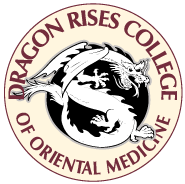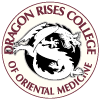CHT 101 Chinese Herbal Terminology 15 hours (1 credit)
Students will learn Chinese medical terms relevant to the study of herbal medicine. Emphasis will be placed on correct spelling and pronunciation of Pinyin.
ETH 101 Ethics in Medicine 15 hours (1 credit)
Students will learn the ethical aspects of practicing acupuncture and herbal prescribing as set forth in Florida Statutes Chapters 456 & 457 and the practical application of ethical and legal responsibilities as they relate to treating with acupuncture and herbs.
MER 101 Channel Theory and Point Location I 30 hrs. Lecture/15 hrs. Lab (2.5 credits)
The first 15 hours of this course is dedicated to an in-depth study of channel theory. Topics covered include six-channel theory, the flow of qi through the channels, internal and external pathways, connecting and divergent meridians, and other channel relationships. Study of acupuncture points will include location, functions, indications, and categories of points such as the five Shu points, Xi-cleft, Yuan-source, Luo- connecting, Entry-Exit points. This course covers the following meridians: Lung, Large Intestine, Stomach and Spleen.
OEE 101 Oriental Energy Exercises I 15 hrs. Lecture/15 hrs. Lab (1.5 credits)
Internal Qigong (energy cultivation) exercises are introduced as tools for maintaining wellness and healing. The classes will be a series of exercises, which enable the student to experience the nature of Qi and increase awareness through breathing, alignment and movement practices.
OPP 101 Oriental Physiology and Pathology I 75 hours (5 credits)
This course covers the general theory of physiology: Yin Yang, Five Element, Qi, Blood and body fluids, and the functions of internal organs (Zang Fu). Internal, external and miscellaneous causes of disease are examined and diagnostic methods introduced. Causes of disease during the prenatal period, infancy, childhood, adolescence and adulthood are presented. Stressors that are common in our time are investigated, including environmental toxicity, physical and emotional trauma.
WAP 101 Western Anatomy and Physiology I 60 hours (4 credits)
This course examines human anatomy and physiology in depth. Special attention is given to surface anatomy. Muscular, skeletal, respiratory, circulatory and digestive systems from the Western model are covered.
WMT 101 Medical Terminology 15 hours (1 credit)
A study of Western medical terminology and nomenclature including major prefixes, roots and suffixes.


